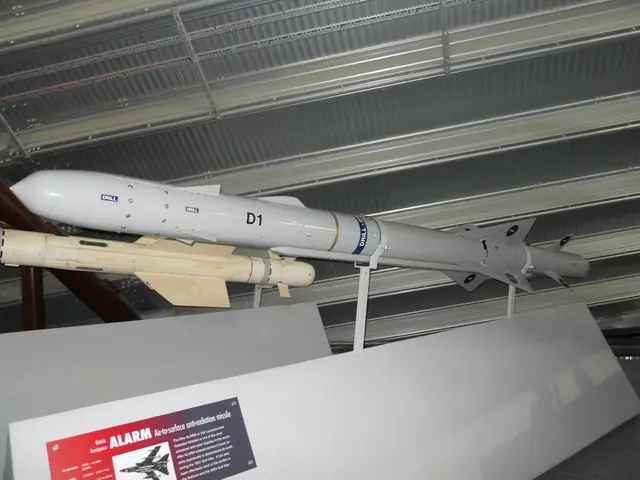Space sector in Europe faces potential closure threat
The European Space Agency (ESA) faces growing concerns about its independence in space exploration, 50 years after its founding, as the USA and China pursue ambitious lunar missions. ESA Director-General Josef Aschbacher has called for greater self-reliance, yet the competitive landscape and private sector advancements present additional challenges.
Europe's dependence on NASA for human spaceflight remains a significant issue. Although the European spaceport in Kourou, French Guiana, and launchers like Vega C and Ariane 6 exist, Europe cannot independently send astronauts into space. With the USA planning lunar missions as early as 2027 and space entrepreneur Elon Musk setting his sights on Mars, there's a fear that Europe might miss its opportunity to join these space expeditions.
ESA has been collaborating closely with NASA but doubts about the reliability of these partnerships have increased under the presidency of Donald Trump. Consequently, Europe is seeking to strengthen its autonomy in space and deepen relationships with other international partners.
One such partner is Japan's space agency, JAXA, with whom ESA has intensified its collaborative efforts. ESA has also been working more closely with India and South Korea. Ludwig Moeller, an aerospace expert, believes that ESA and Europe are global partners of trust, a valuable asset in today's time, which should be cultivated and leveraged for the continent's security and its role in space.
However, ESA faces unique challenges in achieving greater independence. As a collective of numerous member states, the agency operates within lengthy decision-making processes and has limited finances. To overcome this, ESA is focusing on becoming more agile and fostering technological innovation within the private sector.
ESA has launched competitions among European companies for both a new cargo vehicle and a new launch vehicle. Additionally, ESA is working with companies planning space stations as the International Space Station is expected to end its operation in 2030.
Scientific projects such as "Galileo" for navigation, “Copernicus” for Earth observation, and the James Webb space telescope have been successful for ESA. These initiatives have brought globally leading innovations and demonstrate the agency's strength in measurement programs and scientific research.
On the 50th anniversary of the ESA's establishment, the agency reflects on its achievements while looking forward to future endeavors, aiming for less dependence on external partners and greater autonomy.
References: ntv.de, Rachel Boßmeyer, dpa[1][2][3]
- European Space Agency (ESA)
- Europe
- Spaceflight
- europe's employment policy within the European Space Agency (ESA) needs to foster technological innovation in the private sector to ensure self-reliance in space exploration, as the science of space-and-astronomy presents unique challenges for Europe.
- while the community policy of Europe has emphasized collaboration with international partners like NASA, JAXA, and others, the ESA aims to strengthen its autonomy in space, sticking to the vision outlined in its employment policy, and leveraging its position as a global partner of trust for the continent's security and its role in space.








